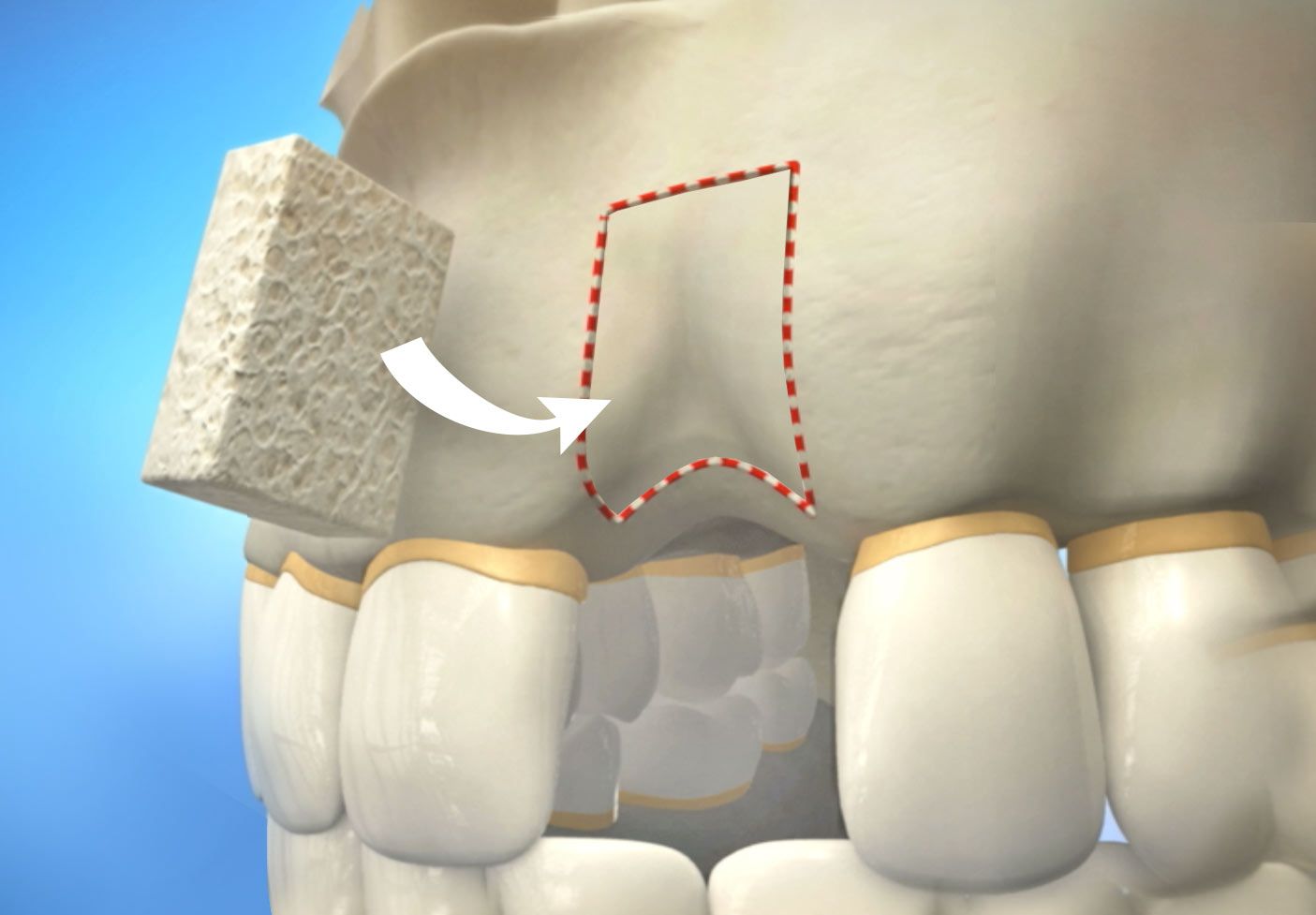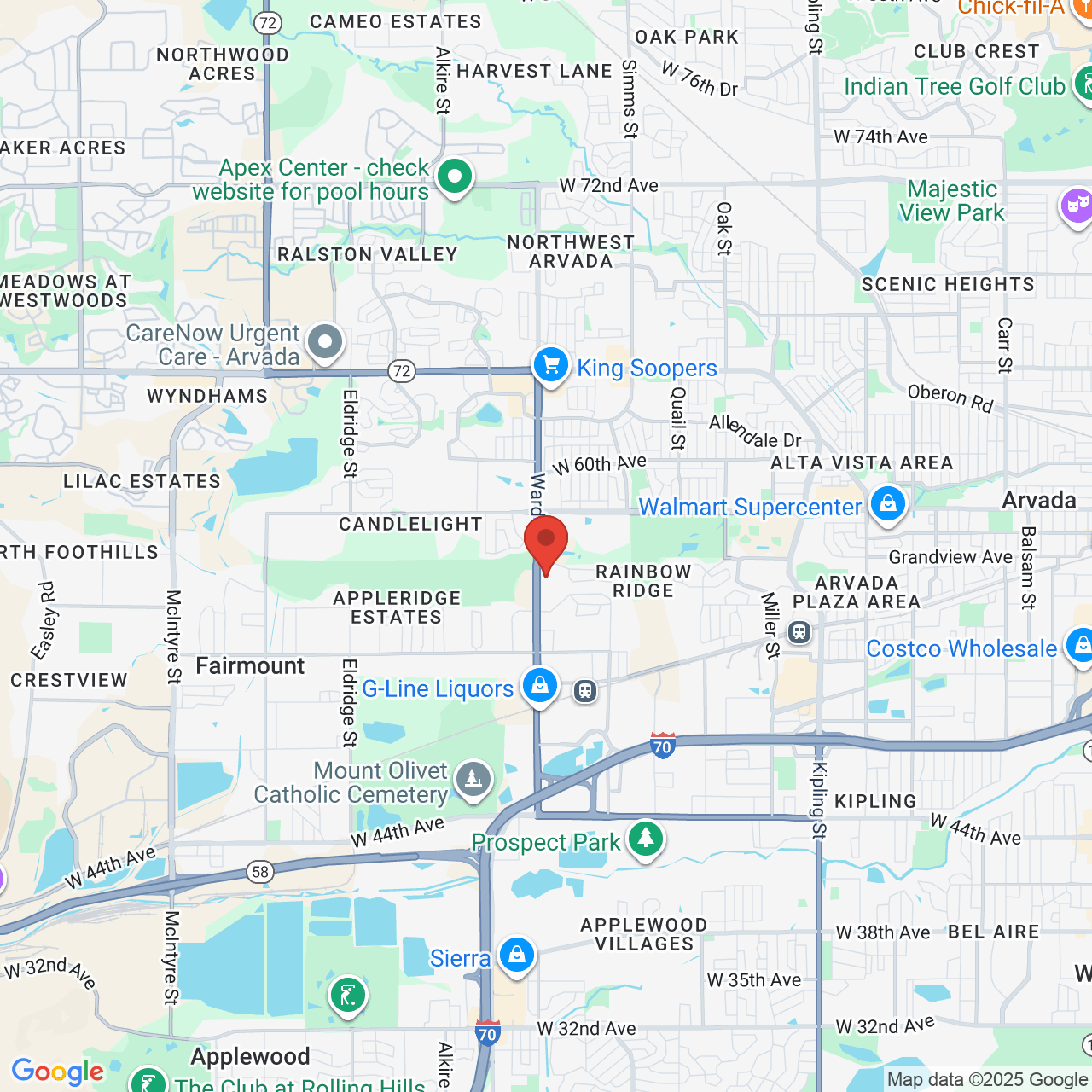Restoring the Jaw with Bone Grafting
Jawbone recession, whether caused by injury, gum disease, or tooth loss, can make it difficult for patients to qualify for dental implants. For patients who wish to regain candidacy for dental implants, bone grafting is an effective means of restoring the jaw. Dr. Christopher Gillette performs the procedure at his Arvada, CO, clinic to help patients experience improved oral health and other benefits.

Benefits of Bone Grafting
When one or more teeth are missing for a prolonged period of time, jawbone recession follows. This is what gives individuals who are missing many teeth a sunken or puckered look. To prevent jawbone recession, dentists often place grafting material in the jaw following tooth extraction. Patients who undergo bone grafting can benefit from:
- A healthier appearance: When teeth are missing or jawbone recession reaches an advanced stage, cheeks can appear sunken and the mouth develops a puckered look. Bone grafting and dental implants can restore and maintain the jaw.
- Candidacy for dental implants: Dental implants require adequate bone tissue for support. Once you have undergone bone grafting and healed, you are likely to qualify for a dental implant. Patients should note that in cases of mild bone recession, they may be able to receive All-on-4® implants without first undergoing a bone graft. Dr. Gillette can determine if this option is right for you.
- A protected smile: Following tooth extraction, patients can prevent jawbone recession by undergoing a bone graft.
- Better oral health: To maintain eligibility for restorative procedures, having adequate jawbone tissue is essential.
For many patients, bone grafting is a crucial first step in rebuilding their smile, their health, and their quality of life.
Am I a Candidate for Bone Grafting?
Dr. Gillette will determine if you are a candidate for bone grafting by examining your teeth, jawbone, and medical history. Bone grafting candidates may have:
- Missing teeth
- Gum disease
- Damage due to trauma to the jaw area
- A compromised tooth that needs to be extracted
Smoking and certain medications can create complications for the bone grafting procedure and recovery. Dr. Gillette will ensure that you are a good candidate before recommending bone grafting.
A Look at the Bone Grafting Procedure
During all procedures, Dr. Gillette makes your comfort a priority. Our clinic offers sedation dentistry to help you achieve maximum comfort during bone grafting.
After anesthesia has been administered, a small incision will be made in your gums. Grafting material or bone tissue will be placed in the recessed area, and the incision will be sutured closed. Complete integration of the graft usually takes about three months.
Call Our Office Today
The value of a complete and healthy smile cannot be overstated. If you have been suffering due to a compromised smile, Dr. Gillette is here to help you experience a new chapter of oral health in your life. For many patients, bone grafting is a crucial first step in rebuilding their smile, their health, and their quality of life. If you have questions about dental implants or the bone grafting procedure, contact our office online or call (303) 420-4001.

